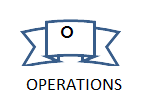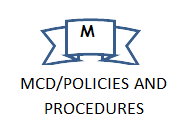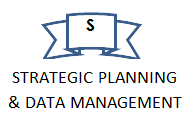Special Education Instruction
Page Navigation
-
Instruction Home
-
K-12 Instructional Programs and Supports
- Deaf and Hard of Hearing (DHH) Program
- Moderate/Severe Instructional Programs
-
Positive Behavior Support
- Contact Us
- Behavior Related Services
-
Trainings
- Functional Behavior Assessment (FBA) Training
- Online Behavior Intervention Implementation (BII) Service Tracking Course
- Online Classroom Management Modules
- Online Functional Behavior Assessment (FBA) Overview
- Professional Development for ED SDP Teachers
- Behavior Safety-Care Emergency Training (B-SET)
- Parent Resources
- FAQ
- Transitioning to Life After High School - DOTS
- Visual Impairment (VI) Program
-
K-12 Instructional Programs and Supports
- Inclusion
-
Effective Classroom Teaching and Learning: Supports and Services
- Access for All: Universal Design for Learning
- Accommodations, Modifications, and Instructional Supports
- Achieving Success: Exiting Special Education Support - Transition from High School
- Dyslexia Awareness
- English Learners and Students with Disabilities
- Extended School Year (ESY)
- For Parents, Students, and Families
- Intervening Early and Often: Multi-Tiered Systems of Support (MTSS)
- Learning Centers and the Resource Specialist Program
- Independent Charter Schools
- Early Childhood Special Education
- Least Restrictive Environment Support
- Private School Support
- Psychological Services Department
- Related Services
- Special Education Home Page
- Los Angeles Unified School District
- Related Services
Speech and Language Impairment as a Special Education Eligibility
-
The individuals with Disabilities Education Act (IDEA) sets the federal standard for educating students with disabilities. Students also qualify for special education services according to the California Education Code. A student with a Speech Language Impairment is defined as a pupil who has been "assessed as having a language or speech disorder which makes him or her eligible for special education and related services when he or she demonstrates difficulty understanding or using spoken language to such an extent that it adversely affects his or her educational performance and cannot be corrected without special education and related services" (CEC, Section 56333).
Children 3 - 22 years of age who meet criteria for special education services may be eligible for Language and Speech (LAS) services. School-based Speech Pathologists share in the decision-making process with the IEP team to determine how to best meet the educational needs of individual students.
What is School-Based Speech Therapy?
School-based speech therapy is a related service that supports the educational program
for students who have a disorder in communication in one or more of the following areas:- Articulation: The production of speech sounds significantly interferes with communication and attracts adverse attention.
- Language: Inappropriate or inadequate acquisition, comprehension or expression of spoken language.
- Fluency: Difficulties which result in the abnormal flow of verbal expression to such a degree that they adversely affect communication.
- Voice: A voice that is characterized by persistent, defective vocal quality, pitch or loudness.
Service Delivery Models
- Classroom based collaborative services and school staff consultation, designed to maximize the student's communication skills for improved participation in curriculum activities
- Small group work designed to build speech and language skills to support and enhance interactive communication skills through peer modeling Individual treatment sessions for selected intense interventions
- After school programs which include parent participation and training.
Tips for Helping Students Who Have a Communication Delay
- Articulation
- Play activities which include sound awareness and discrimination, songs, stories and games that emphasize letter sounds
- Identify a "target sound of the week." Find objects that begin with the sound, make a sound book with pictures, and listen for the sound when reading stories.
- Language- Receptive, Expressive, Social Pragmatic
- Talk to your student about everything you do together.
- "Match plus one" - imitate the child's verbal expression and add one word to model expanded language at his/her appropriate learning level
- Incorporate role-playing, story-telling and play-acting into activities
- Encourage students to tell you what they want rather than anticipating their needs
- Gain students' attention and have child repeat directions to check for understanding
- Break instructions into smaller parts to assure comprehension
- Make connections in every aspect of your child's life for understanding of new vocabulary
- Use visuals to assist story telling and learning of daily routines. Fluency
- Minimize interruptions, competition and a barrage of questions
- Model acceptance for individual differences
- Accept and listen to the student's message
- Voice
- Consult with the school nurse about possible medical concerns.
- Provide opportunities for the student to speak in a normal voice tone, minimizing situations where he or she will shout or scream.
About our Therapists
The Los Angeles Unified School District Speech and Language Program consists of a dedicated staff of over 300 qualified speech-language pathologists. Our therapists are state licensed and/or credentialed. 'Many also are certified by the American Speech-Language-Hearing Association (ASHA). Continued education is supported by the district for our therapists to maintain a keen awareness of the latest research, technology and best clinical practices.
District therapists have specialized training to support the wide variety of needs of the students we serve:- After-school Phonological Program
- Augmentative and Alternative Communication (AAC)
- Autism Project
- Bilingual Assessment
- Hanen Parent Training Program
- Preschool Assessment
Speech and Language Position Paper.
Contact Information
Speech and Language Program
333 S. Beaudry Avenue, 17th Floor
Los Angeles, CA 90017
(213) 241-6200 Fax (213) 241-8433







